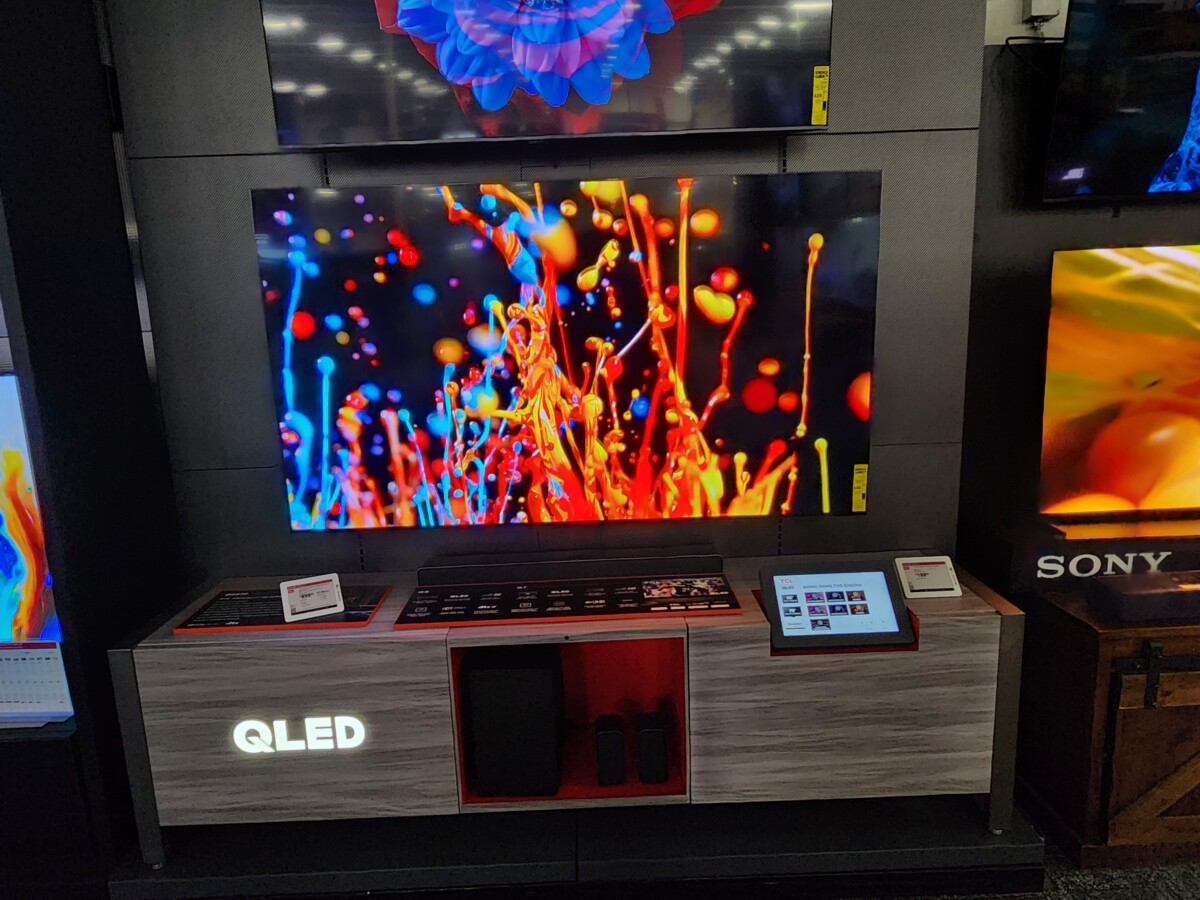As an Amazon Associate I earn from qualifying purchases
If you’re considering purchasing a QLED TV, you may be wondering if it degrades over time.
The short answer is that, like any technology, QLED TVs will degrade over time. However, the rate of degradation is much slower than other types of TVs, such as LED or OLED.
QLED TVs typically have a lifespan of up to 100,000 hours.
This is significantly longer than the lifespan of LED or OLED TVs, which typically have a lifespan of around 50,000 hours.
This means that your QLED TV should last for over a decade of reliable service, even with regular use.
This is why Samsung offers a 10-year warranty that there will be no burn-in on your QLED.
I personally advise people who do not plan on watching TVs in dark rooms to go with QLED TVs. The picture quality and brightness is stellar.
In this blog post I will go more in depth regarding the lifespan of QLED, how to preserve your tv, and which QLED TVs are the best if you plan on buying one.
Does QLED Degrade Over Time?
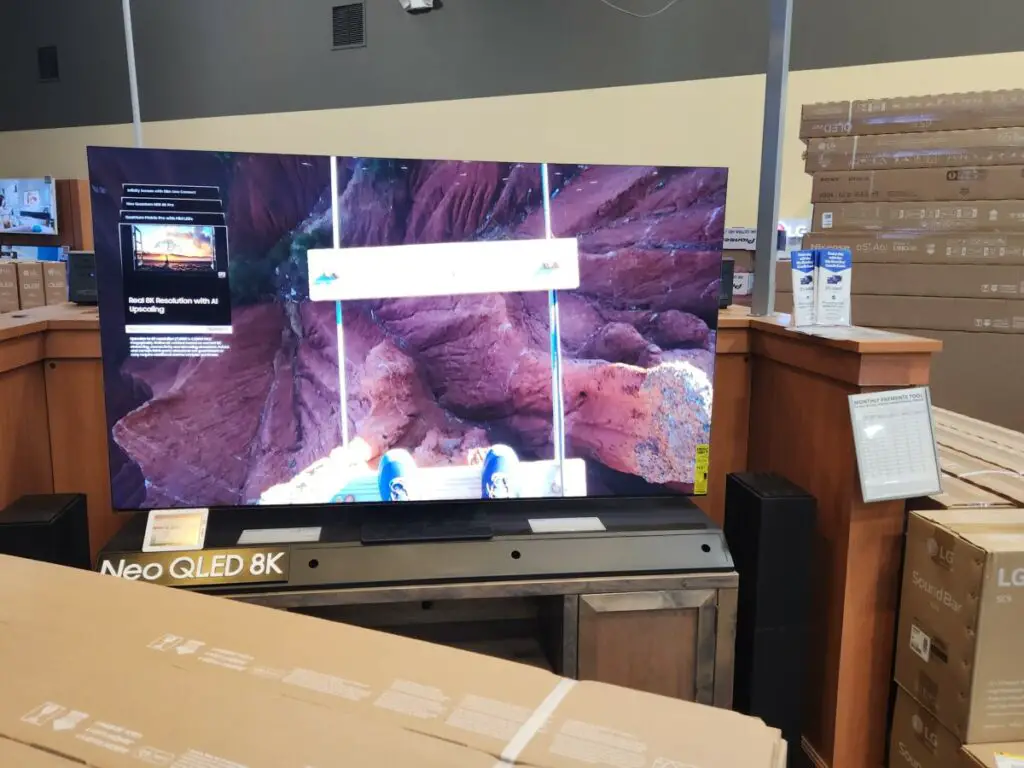
As we have already established like any electronic device, QLED TVs do degrade over time.
However, the extent of the degradation depends on various factors such as usage, environment, and maintenance.
One of the main concerns I hear people bring up with QLED TVs is burn-in.
Burn-in is when a static image is displayed on the screen for an extended period, causing the image to become permanently etched into the screen.
QLED TVs are nowhere near as prone to burn-in compared to OLED TVs, as I mentioned before Samsung guarantees there will be no burn-in for 10 years. However, it is still possible.
Therefore, a best practice with any television is that it is important to avoid displaying static images for long periods, especially at high brightness levels.
Another factor that can affect the performance and picture quality of a QLED TV over time is the degradation of the TV’s components.
As the TV ages, the components may degrade, causing the TV to perform poorly or display lower-quality images.
However, this degradation is usually gradual and may not be noticeable for several years.
To ensure that your QLED TV lasts as long as possible, it is important to take proper care of it.
This includes keeping it in a cool and dry environment, avoiding exposure to direct sunlight, and performing regular maintenance such as dusting and cleaning the screen.
If you can help it never put a TV opposite a window, the glare and sunlight can hamper the viewing experience and cause damage to the TV.
Also, avoid overly bright TV settings like Vivid and Standard and opt for the darker and better contrast cinema mode setting.
If you do these best practices then you are well on your way to having a stellar experience with QLED. There are so many options out there with this technology, at an incredibly affordable price as well, here are some fantastic QLED TVs that we recommend.

- 55 INCH 4K TV: Enjoy enhanced contrast, accurate colors, and fine details with our TCL 55-Inch Q6 QLED 4K Smart TV; Engineered with HDR PRO+ technology, including Dolby Vision, HDR10, HDR10+, and HLG for a breathtaking, vibrant picture quality
- QLED - QUANTUM DOT TECHNOLOGY: With over a billion colors, this 55 inch QLED TV showcases Quantum Dot Technology with UltraWide Color Gamut; With a HighBright Direct LED Backlight, our TCL QLED TVs produce brighter images for an enhanced viewing experience
- GOOGLE TV ENABLED: Experience UHD entertainment with Google Chromecast on this 55 inch smart tv; With the ability to cast directly from a mobile device, it offers a range of streaming services, bringing your favorite movies, shows, and live shows together
- MOTION RATE 240 AND MEMC FRAME INSERTION: Combining multiple motion enhancement technologies, this 4K UHD TV handles fast-paced scenes with ease; Breathing life into every image, our TCL 55 Inch TV ensures exceptional motion clarity
- GAME ACCELERATOR 120: Equipped with our Game Accelerator 120, this 120Hz TV provides a more responsive gameplay without lag; Also boasting a variable refresh rate powered by AMD FreeSync, this gaming TV is designed to keep you at the top of any leaderboard

- 100% COLOR VOLUME W/ QUANTUM DOT: Take in a billion shades of unwavering color and enjoy vivid, lifelike color at any brightness level as Quantum Dot technology works to create every shade you see on screen*
- QUANTUM PROCESSOR LITE W/ 4K UPSCALING: See shows and movies in a whole new light with 4K optimization; Enjoy enhanced clarity and depth in every scene as our Quantum Processor Lite with 4K Upscaling automatically transforms everything you
- DUAL LED: Don’t call it temperamental; You’ll enjoy beautifully balanced colors with dedicated warm and cool Dual LED backlights. Get stronger and accurate contrast with innovative technology that adapts automatically to match your content
- QUANTUM HDR: Watch the details shine through with Quantum HDR that goes beyond leading standards to create deep blacks, impressive contrast, and picture quality that’s analyzed and refined to match the creator’s vision
- MOTION XCELERATOR: Experience smooth motion and improved clarity with Motion Xcelerator; You can now fuel your need for speed with high intensity sports, movies, games, while enjoying crisp and clear details at the same time
- OBJECT TRACKING SOUND LITE: You’ll hear 3D surround sound that follows the movement on screen using our incredible virtual top channel audio—putting you right in the middle of the car chase, stampede or party scene

- 4K ULED: Hisenses proprietary ULED technologies boost color, contrast, brightness, and motion.
- QLED QUANTUM DOT WIDE COLOR GAMUT: Quantum Dot QLED produces purer, richer, more brilliant and accurate color than a regular LED TV. Creating over a billion color combinations that bring vibrant images to life in a way non-QLED TVs cant
- Dolby Vision IQ & Dolby Atmos: Dolby Vision HDR picture and Dolby Atmos sound are cinema technology for your home. They provide amazing realism you can see and hear in every scene
Factors Influencing QLED Lifespan
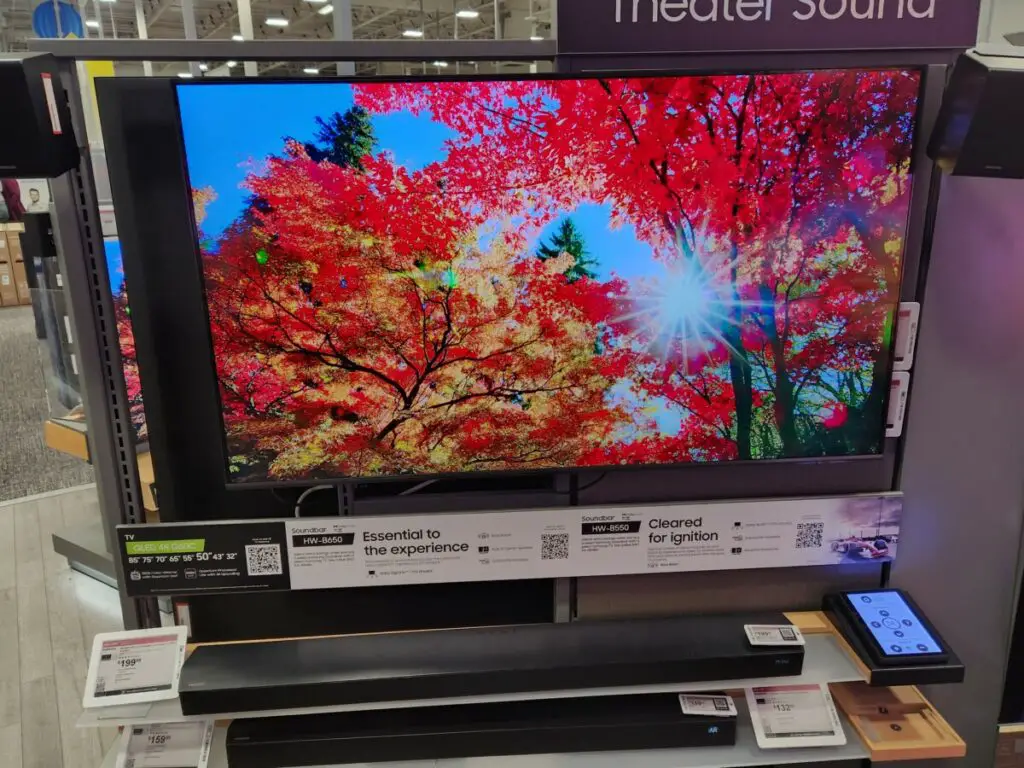
When it comes to the lifespan of a QLED TV, several factors can impact its durability and longevity. Here are some of the most important factors to consider:
Brightness and Color Degradation
One of the most significant factors that can influence the lifespan of a QLED TV is the brightness and color degradation of the quantum dots used to create the image on the screen.
Over time, the brightness of the quantum dots can degrade, leading to a reduction in the overall quality of the image.
This degradation can be caused by a variety of factors, including exposure to light, heat, and humidity.
Heat and Air Circulation Impact
Another critical factor that can affect the lifespan of a QLED TV is heat and air circulation.
QLED TVs generate a significant amount of heat, which can cause the quantum dots to degrade more quickly.
Poor air circulation can also exacerbate this problem, leading to a shorter lifespan for your TV.
To help mitigate these issues, it is essential to ensure that your QLED TV is properly ventilated and that you do not block any of the air vents.
Understanding QLED Technology
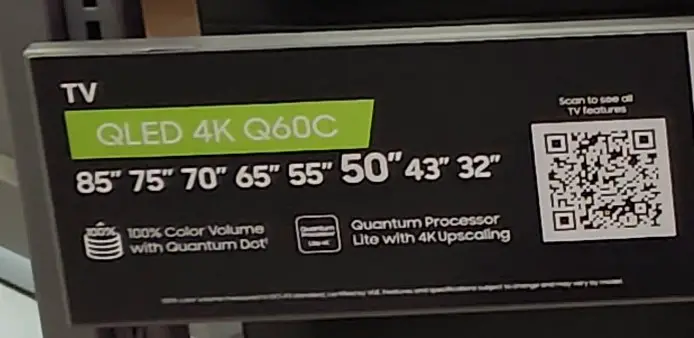
QLED, or Quantum-dot Light Emitting Diode, is a type of display technology that uses quantum dots to enhance image quality.
In this section, we will explore how QLED technology works
Quantum Dot Layer and Image Quality

At the heart of QLED technology is the quantum dot layer.
Quantum dots are tiny, inorganic particles that emit light when excited by energy.
In QLED displays, a layer of quantum dots is placed between the backlight and the LCD panel.
This layer of quantum dots absorbs the light from the backlight and re-emits it in a more pure and precise color.
This results in a wider color gamut and more accurate colors, making for a more vibrant and lifelike image.
The use of quantum dots also helps to combat the issue of image degradation over time.
Unlike organic compounds used in some other display technologies, quantum dots are more stable and less prone to degradation.
This means that QLED displays can maintain their image quality for longer periods of time.
Comparing QLED with Other Technologies
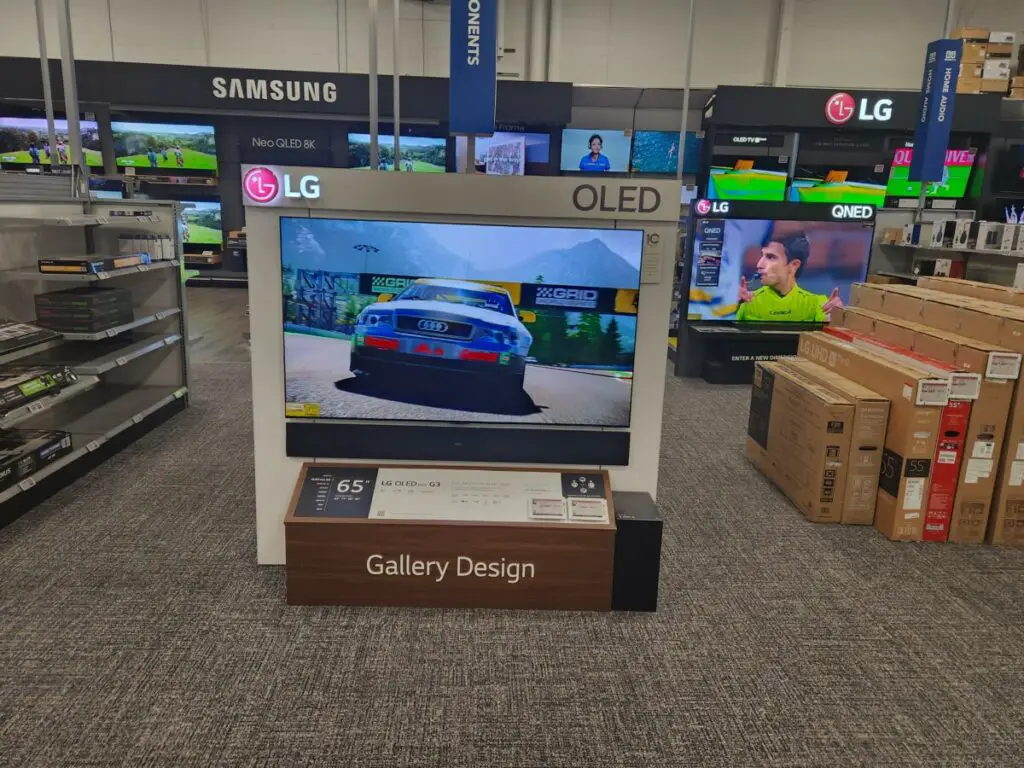
When it comes to buying a new TV, you want to make sure you’re getting the best technology for your money.
QLED TVs are a popular choice, but how do they compare to other technologies on the market?
In this section, we’ll compare QLED with OLED and LED-LCD technologies.
QLED vs OLED: Key Differences
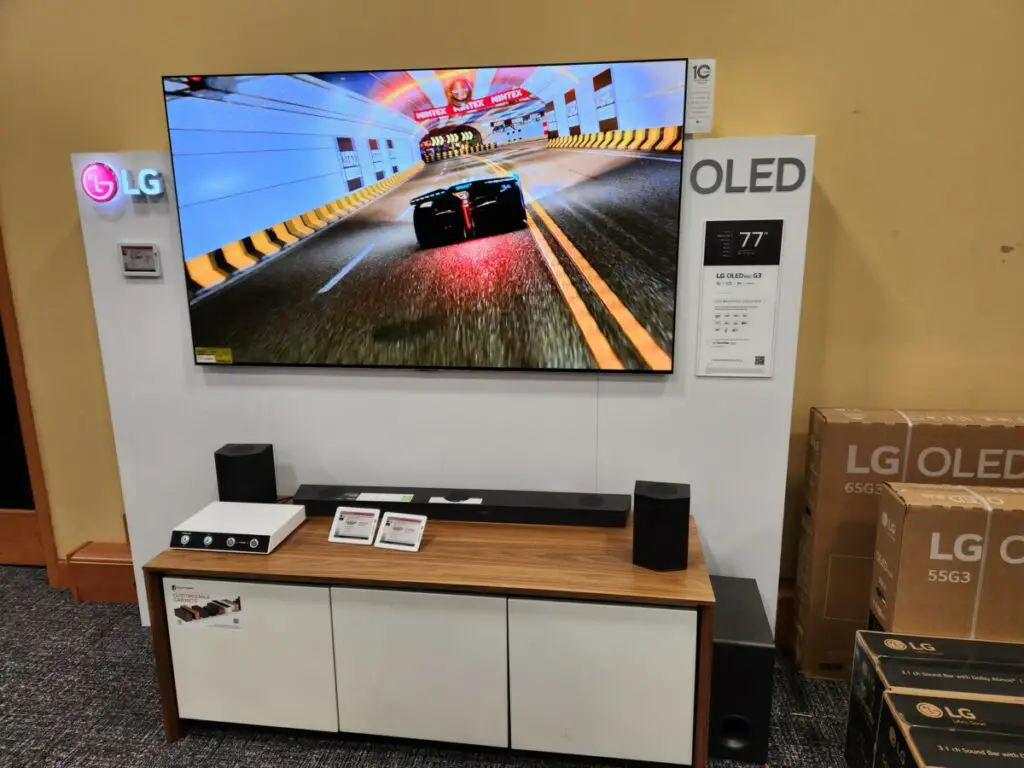
.While both QLED and OLED displays offer excellent image quality, they differ in their construction.
QLED displays use a layer of quantum dots to enhance image quality, while OLED displays use organic compounds that emit light when an electric current is applied.
One advantage of QLED displays is their brightness.
QLED displays can achieve higher levels of brightness than OLED displays, making them a better choice for bright rooms or for watching content with a lot of bright colors.
Meanwhile, OLED TVs are best for dark rooms as the peak brightness on those displays is much lower than QLED.
On the other hand, OLED displays offer better contrast than QLED displays.
This is because each pixel in an OLED display can be turned off completely when displaying black
This gives OLED TV’s that true black color they are known for.
In contrast, QLED displays rely on a backlight that can bleed through, resulting in a less true black color.
LED-LCD vs QLED: Contrast and Brightness
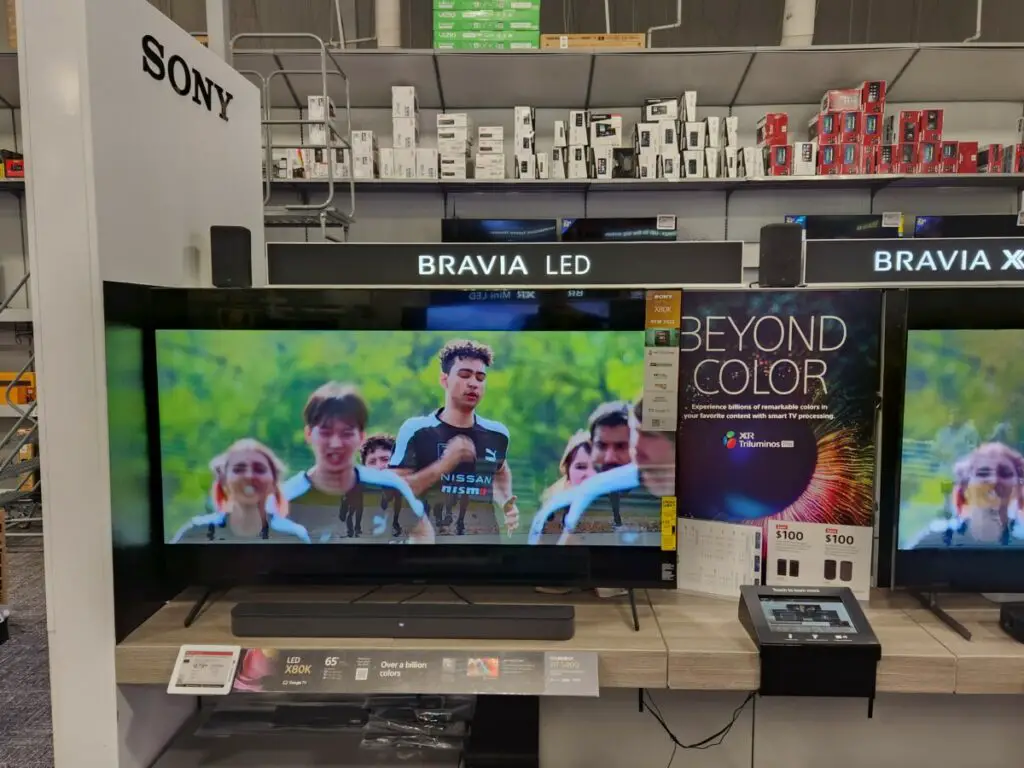
LED-LCD technology is the dominant technology in flat-panel TVs and has been for a long time.
LED-LCD TVs are cheaper than OLED and QLED, especially in larger sizes, and numerous panel-makers can manufacture them.
However, LED-LCD TVs have lower contrast ratios and brightness levels compared to QLED TVs.
QLED technology offers excellent black uniformity, resulting in deep blacks and high contrast ratios.
QLED TVs also have a higher brightness level than LED-LCD TVs, making them a better choice for well-lit rooms.
However, QLED TVs are not as thin as OLED TVs and don’t offer the same level of viewing angles.
Maintaining QLED TVs for Maximum Longevity
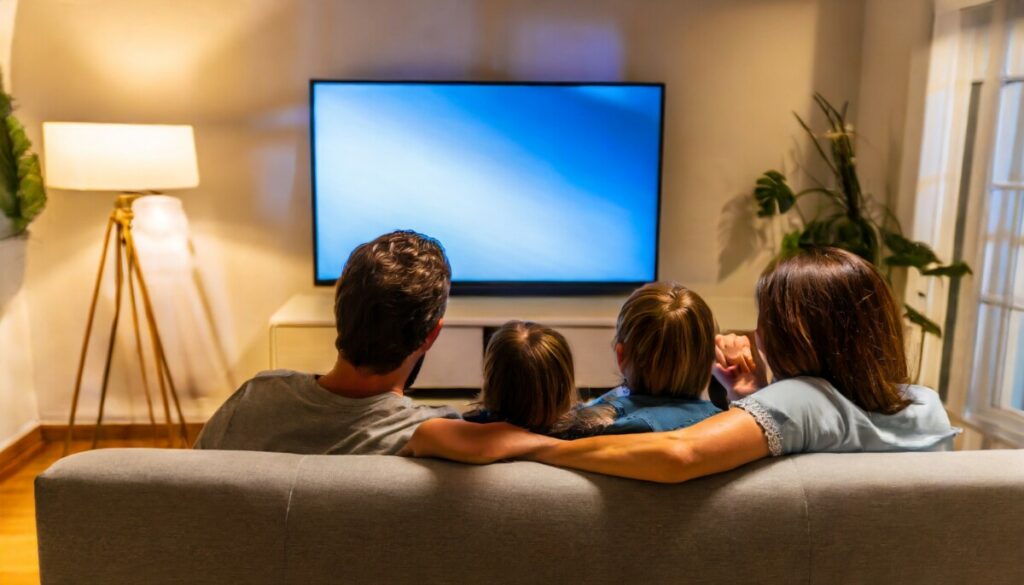
QLED TVs are designed to last for a long time, but proper maintenance and usage can help extend their lifespan even further.
Here are some tips to help you maintain your QLED TV for maximum longevity.
Optimal Settings for Prolonged Use
One of the most important factors in maintaining the longevity of your QLED TV is to use the optimal settings.
Adjusting the brightness settings to a lower level can help reduce the stress on the TV’s backlight and thus prolong its lifespan.
It is also important to avoid using the TV at its maximum brightness for extended periods of time, as this can cause the TV to degrade faster.
The Role of Usage Patterns in Degradation
Another important factor in maintaining the longevity of your QLED TV is to be mindful of your usage patterns.
Using the TV for extended periods of time without any breaks can cause the TV to degrade faster, as the components are constantly under stress.
It is important to take breaks when using the TV, and to avoid using it for extended periods of time without any breaks.
Always make sure to turn off the TV if you are not actively using it.
Luckily, most TV’s automatically turn off after a certain period of time, I know that is the case with my Sony A80J.
In addition, it is important to avoid using the TV in environments with high humidity or high temperatures, as this can cause the TV to degrade faster.
It is also important to avoid exposing the TV to direct sunlight or other sources of heat, as this can cause the TV to degrade faster.
Future of QLED and Technological Advancements
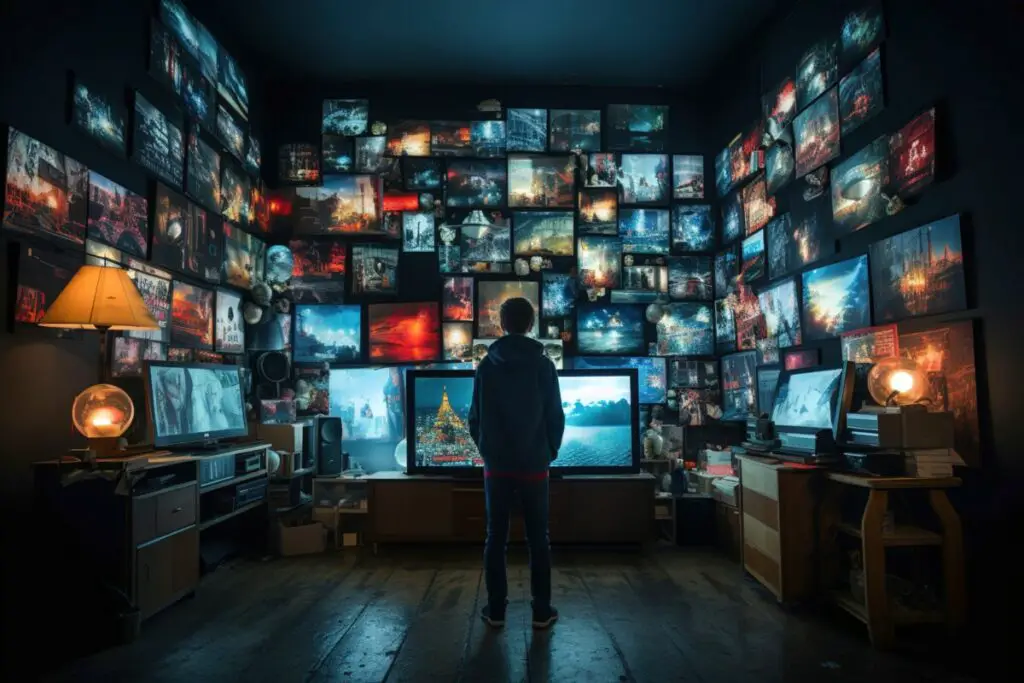
As with any technology, QLED has room for improvement. However, Samsung is constantly pushing the boundaries of what’s possible with QLED TVs.
Technological advancements are being made to ensure that QLED TVs remain relevant and competitive in the market.
Samsung has implemented a new technology called “Quantum Mini LED”. This technology uses smaller LEDs, which results in a more precise backlight and better color accuracy.
This means that QLED TVs with Quantum Mini LED technology may have a longer lifespan and be more resistant to degradation over time.
Another area of advancement is the development of QD-OLED technology.
This technology combines the best of both worlds by using Quantum Dots (QD) and Organic Light Emitting Diodes (OLED) to create a display that has the color accuracy of QLED and the deep blacks of OLED.
While this technology is still in development, it has the potential to be a game-changer in the TV industry.
In fact, it could potentially phase out OLED TV’s.
Samsung is also experimenting with Mini-LED technology, which uses smaller LEDs to create a more precise backlight and better contrast.
This technology is already being used in some high-end TVs and is expected to become more common in the future.
Overall, QLED technology is constantly evolving and improving.
With the development of Quantum Mini LED, QD-OLED, and Mini-LED, QLED TVs are becoming more advanced and competitive with other display technologies.
While OLED still has its advantages, QLED technology is here to stay and is only going to get better over time.

